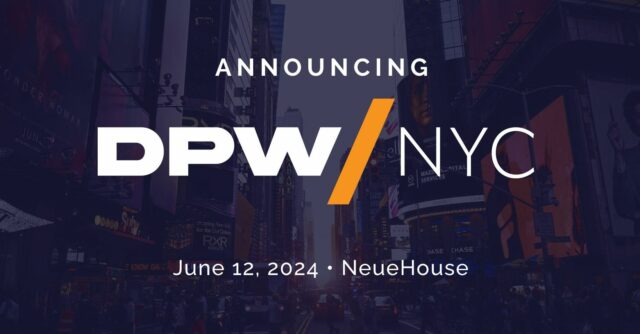Ian Moyse, EMEA Sales Director at Natterbox Limited outlines one of the most important skill sets in the modern age: the need for acceptance and receptiveness of innovation and digitisation. The ability to be agile as a technology professional… By Dale Benton
How important is it to stay on top of, and to understand, both the speed of change and the increasing demands on modern technology?
One of the skill sets, and not just in sales or working in the tech sector, but across a lot of roles today, is the capability to be agile. Humans have this propensity to change and adapt. Otherwise, we wouldn’t be here today, right? But you’ve got to be willing to do that. A valuable skill today is acceptance and receptiveness and the ability to change, and change again, and again. We’re seeing less and less of doing the same thing day in, day out, for 30 years or so.
So, what exactly is Natterbox?
Natterbox has built, from the ground up, a cloud telephony system, which was called VoIP. The real unique thing is we’ve built the system fully inside Salesforce. We’re the most integrated telephony platform for the Salesforce platforms, whether it is service cloud, sales cloud, force.com etc., on the planet. You could say it’s a niche market, but it’s a very big niche market, enabling customers who have invested in Salesforce to also put their telephony in the cloud, and put the two together. It’s using data that you have about customers, whether it’s opportunities, cases, support, tickets, to improve and transform both your customer and your agent’s experience with telephony. To do things that you couldn’t do with old technology, and old telephony systems. Simple example, if you phone in and you had a ticket with a customer yesterday and they didn’t call you back, how transformational would it be if when you phoned them, if the phone system dynamically recognised your number, had looked you up in their system and went, “Hi Ian, thanks for calling this morning. We detect, we didn’t call you back on that ticket yesterday, if that’s what you’re calling about, press one, and we will escalate you to the right person quickly. Two, for our normal menu.”
We’re using live relevant data about the customer to personalize and transform their experience over the phone. Exactly like you’ve seen on websites for years, where you go to a website, it remembers who you are from a cookie, and starts to personalize your experience and treat you differently. We believe you should be doing that on the phone, and that’s the capability we give to customers.
Can you explore the technology that sits at the very heart of that?
We’ve seen some players try and do this by buying components, underlying components in, but we wanted to own the stack because if you’re going to do this stuff, it’s obviously important to you.You can’t do this stuff and do half a job, it’s got to be extremely resilient, because you’re setting the customer expectation, you’re setting the bar high and you’d better deliver. We architected this ourselves, and we chose Salesforce purely because we wanted to be the master of one and do it well. We decided we are going to do this to the extreme we believe the market needs.
Everything behind this has to use efficient, speedy cloud systems, because it’s real time. You have a conversation, you have an electronic voice, you want it to sound as human as possible, and it needs to be instantaneous. The customer isn’t going to wait two or three seconds as you would on websites. Our expectations are set high. It is extremely complex under the covers, but one of our goals we achieved was to make it easier for customers, to hide all the complexity in the back end, and give them an interface where they can configure this, and manage it very quickly themselves. So if they want to make a change, it’s real time. Make the change and it’s live across your whole phone system.
Data is key to what you do, but how do you ensure that data is governed?
If you look at the press today, in the past number of weeks, at the point we’re speaking now, we have seen some of the impact of data breaches like we’ve never seen before. The consequence used to be, A, we wouldn’t always necessarily hear about the story and B, the impact and cost of that business was reduced; it didn’t get much news. It was, “there’s been a breach”. If you heard about it, great, but it has diminished quite quickly. Today we live in a different world. The rules have changed.
We’ve seen these large businesses now, they’re getting fines in the hundreds of millions. So the penalty should have been there before. I don’t think the threats are getting worse. They’re getting different, but the threats have been there for years. If you’ve got data, it is an incredibly valuable asset. When I speak at schools, it’s always interesting. A question that’s come up a few times is, “Facebook and these, how do they make money?” Because they see these platforms, that they recognize cost money to build and run. “How do they make money?” The money isn’t in the membership fees, it isn’t in the logins. It’s in the data they get, what they know about us, how they can market to us and sell us… We’re their commodity, we’re their product.
With technology continuously evolving, how can companies like Natterbox be ready for the next wave of digital transformation?
What I say to people is, what is your business? What is the product or service you sell? What’s the dynamic of your customer? Now if you’re a hairdresser cutting hair, you physically have to cut hair. So unless some incredible robot comes along in the future, that’s going to continue. It’s understanding what your business is, and what the persona of your customers are and how are they wanting to interact with you? It depends on generation as well. Millennials have been born into a world where social media has always been there, and all this tech we’re seeing, and Amazon, and apps on your phone for ordering is taken for granted. I would argue, however, all of us that haven’t come from that generation have probably been dragged into it anyway, and we take it for granted as well.
Our expectation bars have been set to a peaked level. The problem for any business that isn’t in that born in the cloud model, is that the customer expects the same of you, because someone else has raised the bar. And that’s why we’ve seen the likes of Blockbuster Video fall foul of Netflix and Amazon’s LoveFilm as was. There’s nothing wrong with Blockbuster, we’re hiring a video. But someone came along and presented a faster, quicker, slicker, more flexible model. It changed the dynamic of how the customer engaged or bought that product or service.
If you’re in a market that can be transformed, or you’ve got someone coming into it, you need to start now. You need to be the ones doing it, not waiting for someone else to transform you, and then you’re on the defensive. It’s harder for you as a legacy business to transform than it is for a newcomer. A new business will buy everything in the cloud. They’ll buy all the new technology, and apply processes that fit the new world that we’re now in, and the new buyer dynamic, and the new customer persona, and the new tech world we live in. Because they can.
If you’re in a business, forget what you do today. Go in a room with the people who understand the history of your business, or the dynamic of your market. Whiteboard, spend a couple of hours with some coffee and donuts, and just chat through. If we were starting this company again today, what would we do? Imagine that your company does not exist. You have all left and gone to a start-up. You’re going to start a competitor. What would you do? You would not build what you built historically.
The reason you did that is because it was the world you were in at the time you built it. So there’s nothing wrong with what you did. It’s the nature of the beast. But today, you would do it differently. And that’s how your mindset needs to start. Then you work backwards to, “Okay, so how do we get there? What, what’s the easy win? Is there anything of these 20 ideas we’ve come up with, where we can start to … This year we could do three of them?” That’ll be hard in itself. Right? But we can start to move along the journey of trying to move towards that. Because we’ve all agreed if we started the business today, that’s what we’d do to beat our own company. If you can think of it, someone else can as well, and someone else can do it, and they can potentially do it quite quickly.











